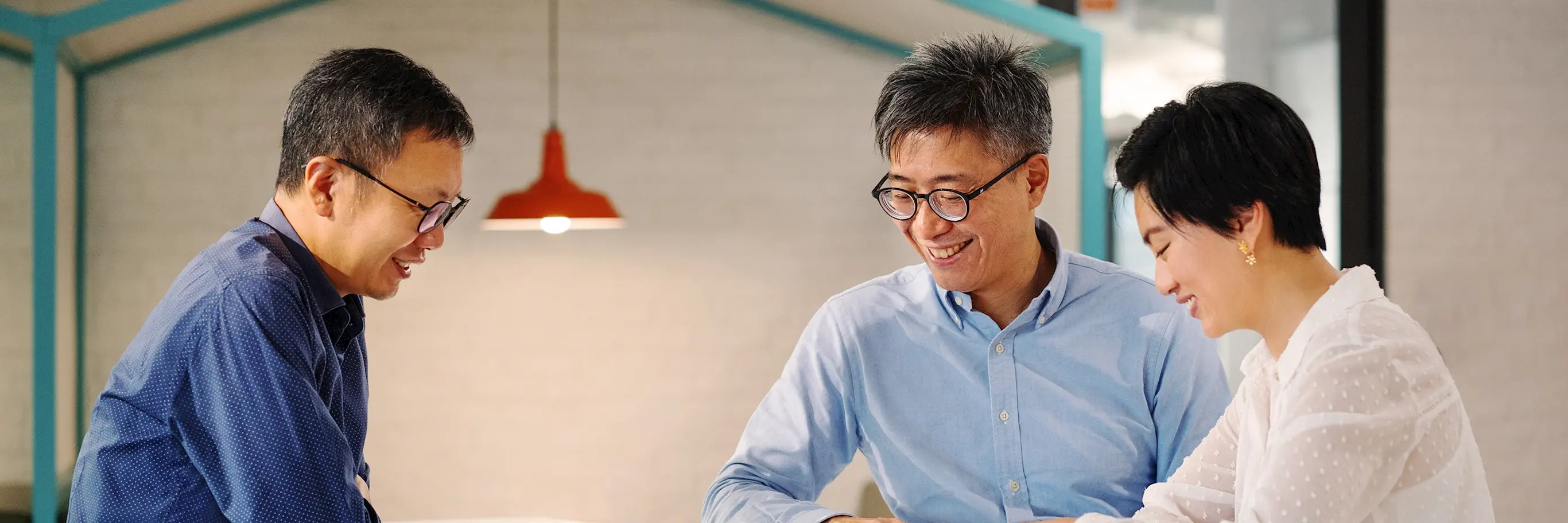
Money can make you happy: 5 Financial lessons from Marvin Germo
Money may not buy happiness, but it plays a massive role in your wellbeing. Read on for more money and financial misconceptions you should stop believing.
Money can take you to so many places and buy you so many things. However, you might have heard of that little-known adage that it can't buy happiness. However, investment expert Marvin Germo doesn't think this is the whole truth. The relationship between money and fulfillment depends on personal perspective.
Germo says that money can actually “buy” us happiness, but not in the “I own everything” sense. It’s what you do with the money that will make you happy. After all, being financially secure can and will affect your physical, mental and emotional, and social wellbeing in dramatic ways. Are you surprised at this shocking revelation? Here are more debunked money misconceptions and financial lessons to live by from Germo’s talk in FWD Life Insurance’s “Be the Stronger, Better You in 2022” workshop last December 2021.

Money is neutral.
For that reason, make money work hard for you and not the other way around. It may come as a surprise how money can work massively hard for you if you start looking at money as a tool and an amplifier of what you already are. Remember that money is a good buffer for you to fulfill what you want to do and achieve what you want in life.
Money can't buy happiness.
However, it can keep you out of debt when emergencies happen. According to Germo, “Money can’t buy happiness, but it can allow you to live in your own terms.” Like deciding to retire at any age you deem fit. It gives you what you need to live the life that you want. Money gives you peace of mind in times of uncertainty, like economic recessions. It can give you the ability to have better options. All of these things contribute to your definition of happiness. You'll realize that money will factor in many of your goals.
You can control your finances.
You can't control many things like the national economy or the GDP, but you can take stock and manage your personal economy. Your economy is how you plan, budget, save, pay your debts, deploy your capital, manage risks, and diversify using your money. Don't wait for things to get better before you start developing good financial habits. Don't wait for your money to grow to start managing your finances and budgeting them more smartly. We should develop the skill set of being wise about money and make saving money a mechanical habit. After all, saving money is not about the amount but more about the discipline.
Don't delay budgeting.
The best time to budget, save, and invest is today. You can't turn back time, after all. It may seem that saving money is a waste of time because money does not grow. But, we should always remember: preparation time is not wasted time. Saving money is putting in money with a goal in mind. Remember that the fastest way to get rich is to do it slowly. Building and stockpiling your savings is the smartest way to start if you want to invest in something.
It's about your choices.
In the end, being financially secure is not about how much you earn but what you do with it. The ultimate goal with money is to make it outlast you by giving it away and letting other people benefit from having what you had. One example is insurance, which is primarily used to financially protect the people you love. Your investments can also help your loved ones have comfortable lives.
Financial wellness is not about how much money you have stored or how prolific your investments are. It's about the fullness and the balance of every aspect of our life. “Total and wellbeing" is the balance of health, wealth, and everything inside of you for you to be able to live life at its fullest,” Germo points out. Money is nothing if you don’t get to achieve your other needs, such as physical, emotional and mental, and social needs. These lessons on finance should give you a new outlook about how money can contribute significantly to your life as a whole.




